Nordic combinations
The aim is for visitors to get their first impression in the deep, Swedish woods. The Lake House is situated two hours east of Gothenburg and a 15-minute drive from the factory near Ulricehamn. This is where Bolon, a third-generation family business, accommodates customers, journalists and business partners. A stony path leads through thick forest down to the shores of lake Åsunden. There it is – a classic Swedish idyll. It is a pretty building with a front porch, lights in the trees and a long white table that is ideal for large parties and warm summer nights.
“It’s always been a part of our philosophy to welcome our guests in a special way,” says Annica Eklund. She has managed the family business together with her sister Marie in the third generation for 15 years now. That is what they had learned from their parents. “We want to have a good time with the people we work with – private and personal relationships with each other are what count.”
And private is how you feel the second you arrive – with the family photos on the walls and a cook who comes by only to prepare dinner. A visit to the Lake House is not only a short holiday in a stylish ambience, but also an ideal introduction to the world of Bolon products. The Bolon flooring made of woven nylon yarn, which neither feels nor smells like plastic, covers two storeys comprising five rooms and a kitchen. The flooring feels soft and at the same robust to the feet, just like leather. The business employing 120 staff now exports it to 60 countries. Millions square metres of flooring are woven at the nearby manufacturer every year – and only what is ordered gets produced.
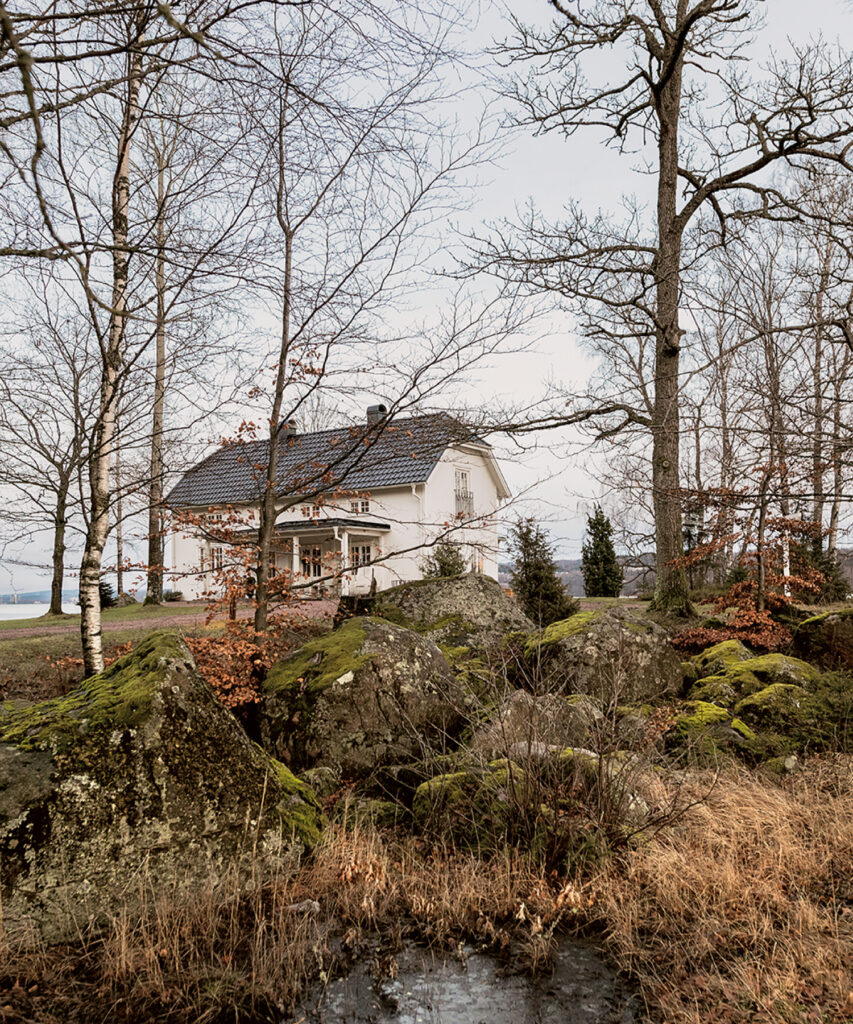
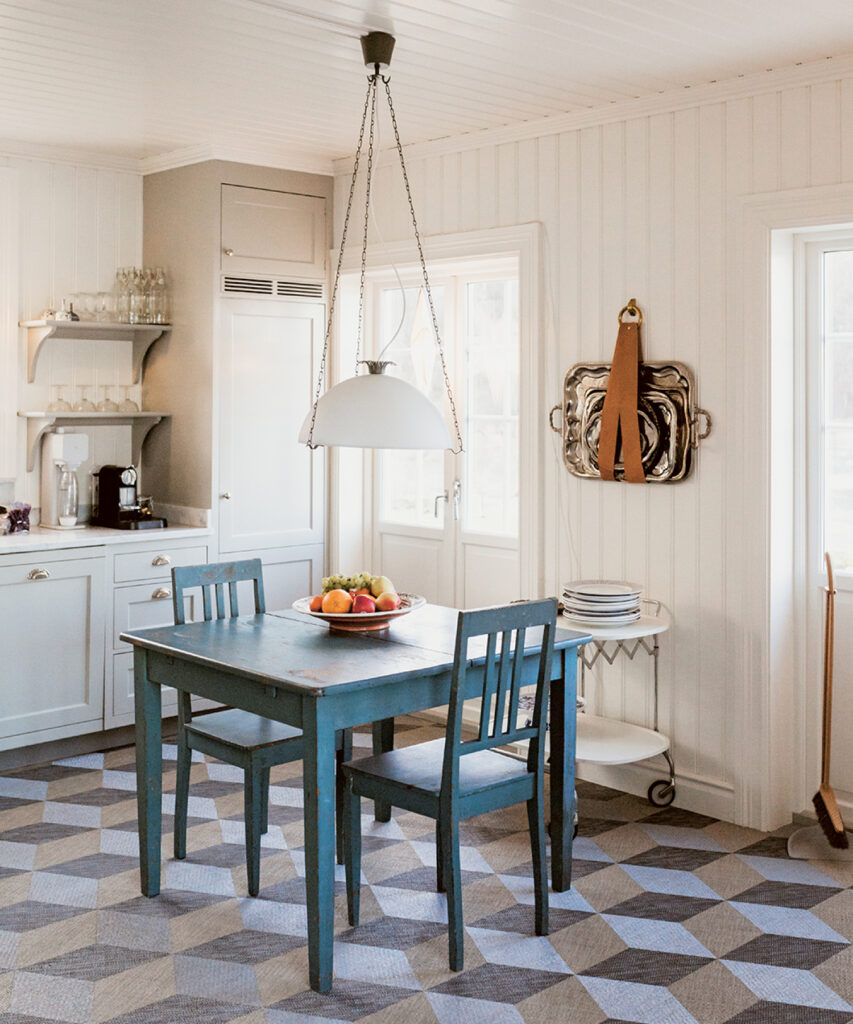
The sisters reinvented the family business with their very own eye for colours and patterns. Nowadays they supply hotels, corporations and private customers with their vinyl rugs, which are reminiscent of sisal constructions due to their weaving of PVC bands and which experiment with 3D effects and reflections of light. Famous names are among the customers, such as design legend Tom Dixon, as well as Paul Smith and Giorgio Armani. Giorgio is perhaps the most important customer of all – because he was one of the first.
Marie and Annica had not been in charge of the business for long when they travelled to Italy, where they stumbled across their own creations by accident in a lookbook by the Italian grand seigneur of fashion. While they suddenly felt like they were on track, there was lots of scepticism towards them, especially from long-standing employees: What are they doing? Can they do it? “It was clear to us that if we can win over someone like Armani, then we can achieve a lot of other things,” says Annica.
It is Friday morning and only a few of the 15 gigantic looms are operating. The offices are likewise not fully manned. Flexible working hour models and part-time positions are rather the norm than the exception in Sweden. Annica and Marie discuss moodboards and new yarns with an employee. They don’t want to give too much away. “We’ve just finished our business plan for the next five years. In terms of space, we’re moving upwards – we’re climbing up from the ground floor.” If you take a look at the corridors at the head office, you might guess what it is they have in mind. There are chairs and armchairs upholstered with the typical Bolon weaving.
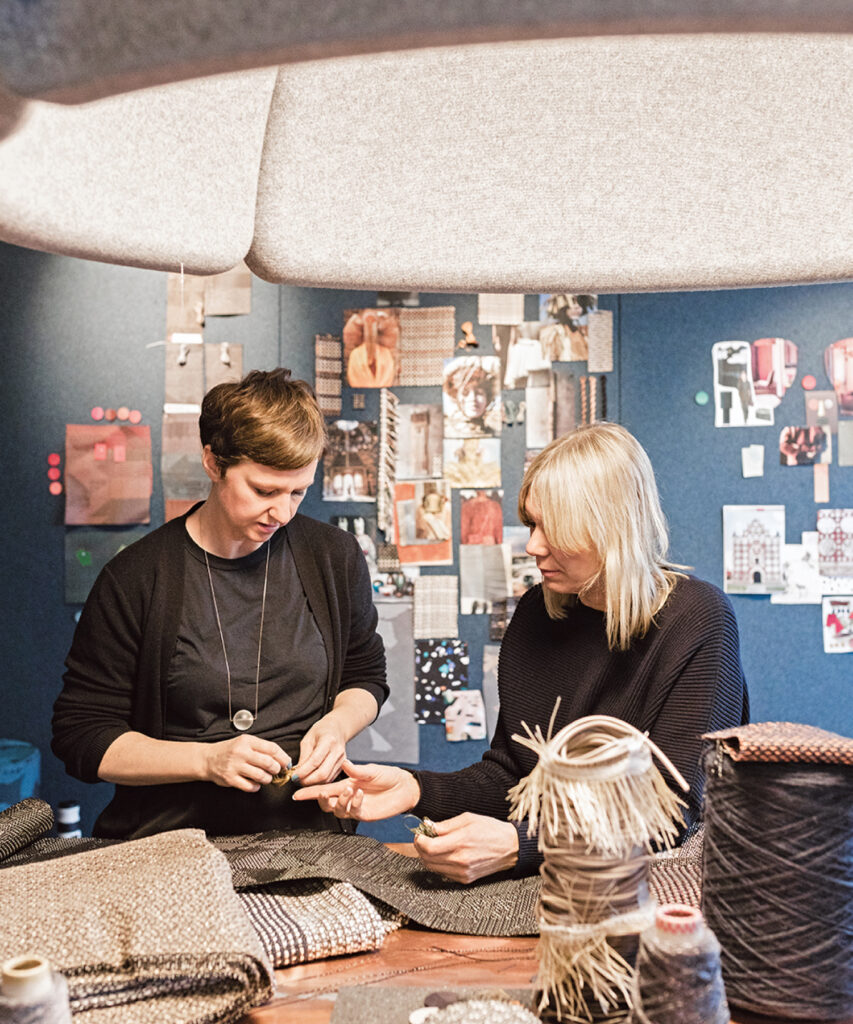
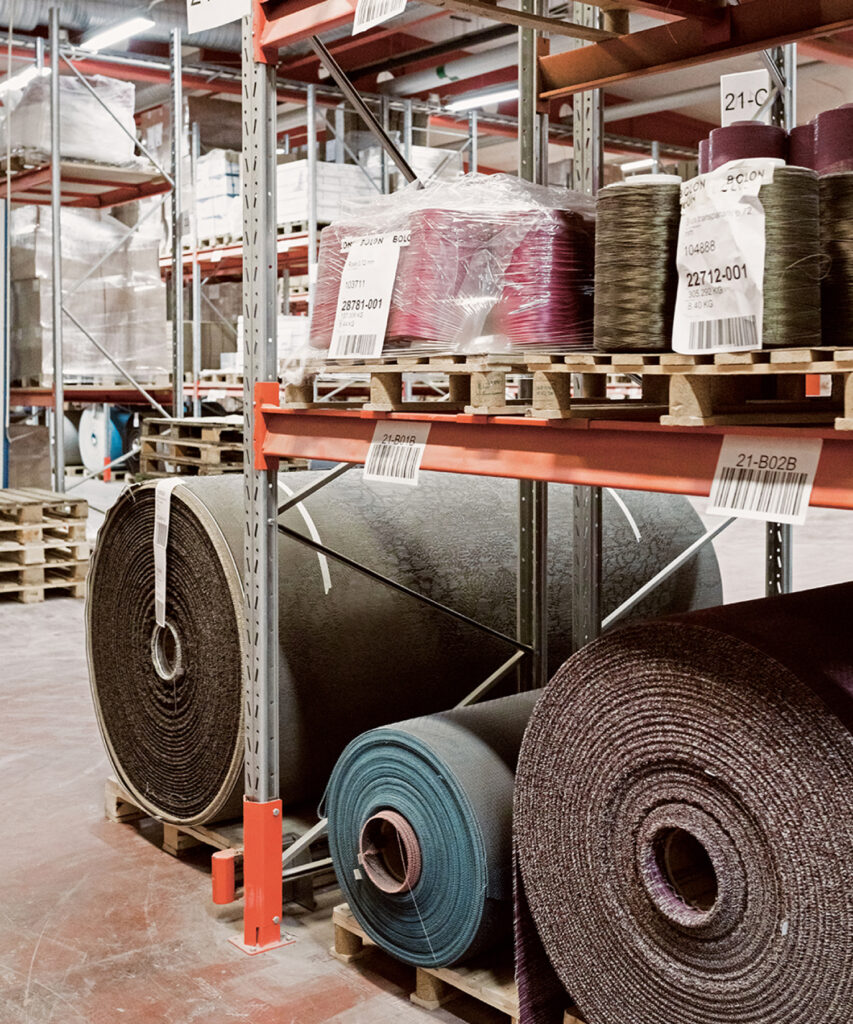
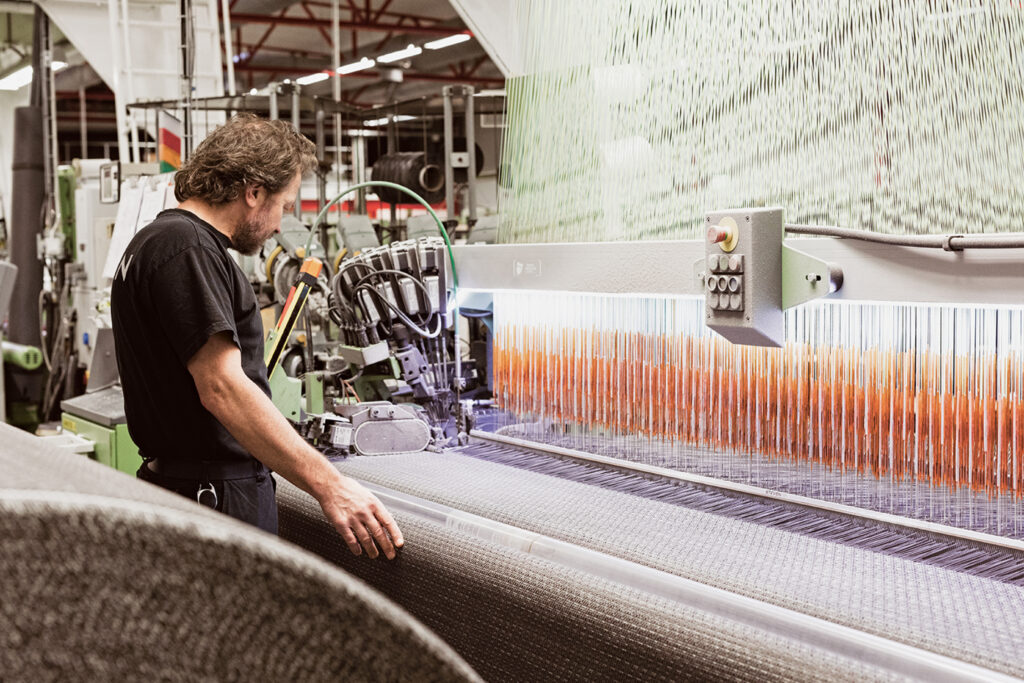
The sisters had just one proviso for their parents from the outset. Should they ever take over management of the business, they had to be allowed to embark on an entirely new era. It was the late 1990s and Belon was renowned and successful as a manufacturer of camping carpets woven from nylon yarn. “But we found the industry borning and didn’t see any potential for it,” says Marie Eklund. Did they believe that there were any opportunities in tradition? They shake their heads. No, it’s just ballast.
Grandfather Nils-Erik Eklund founded Bolon in 1949. During the years immediately after the war, he worked in a factory and plastic tablecloths were manufactured next door. When he saw how much of the textile leftovers ended up in the rubbish, he decided to sew patchwork rugs. That’s how he started what was one of the first upcycling companies in the world: Bolon. The second generation, Annica’s and Marie’s parents, themselves keen campers, discovered a niche market for beautiful camping rugs made of plastic on their travels in the 1970s. They cornered the market – and that’s where they stayed. Marie Eklund laughs: “Back in the day it was clear to us that we’d never join the business!” They were interested in other things. Annica wanted to start a career as a professional horse rider while Marie went to Florence to study fashion. The sisters’ paths crossed at their parents’ factory more often a few years later because they were both helping out there for a short while their father had moved the business to its present location – with a new production hall, modern technology and the idea to cover the floors of the new offices with their own camping weavings. That inspired Marie, who had recently graduated as a fashion designer: “Rugs with sex appeal and rock’n’roll, with elegance and sensuality.” This was the complete opposite of everything that Bolon had stood for. “I realised that I could apply my sense of aesthetics to carpets as well” – and they also discovered that they had found their own market-niche.
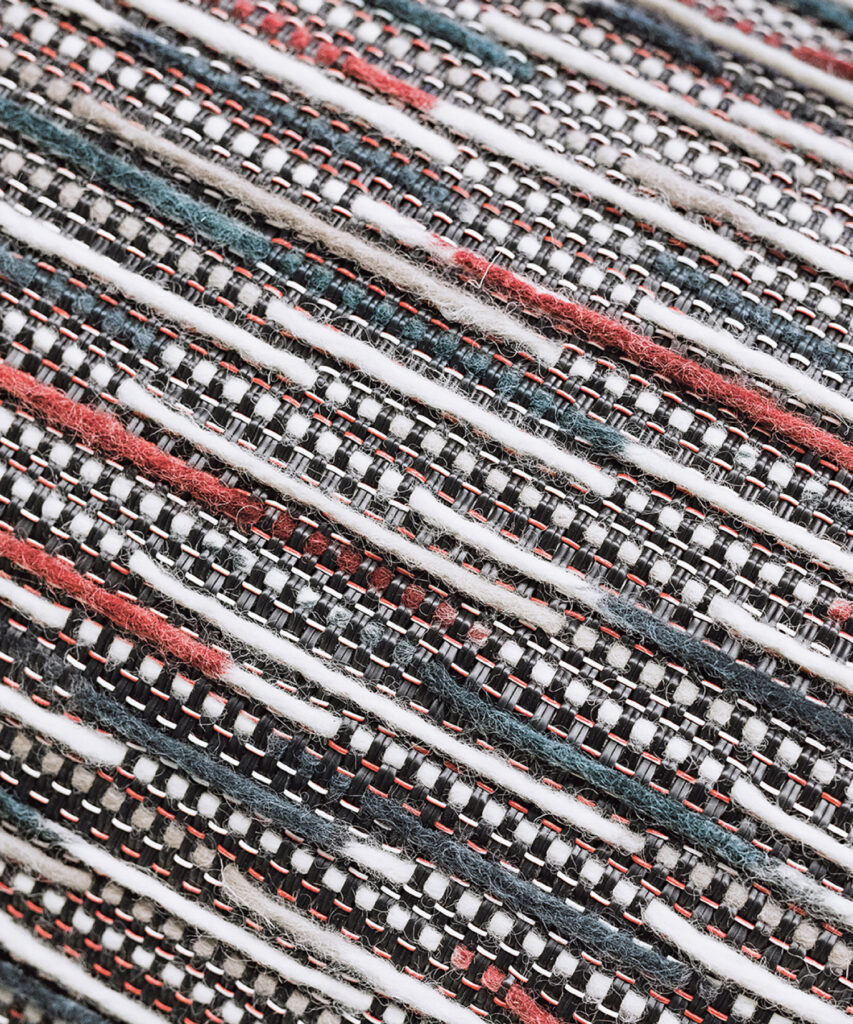
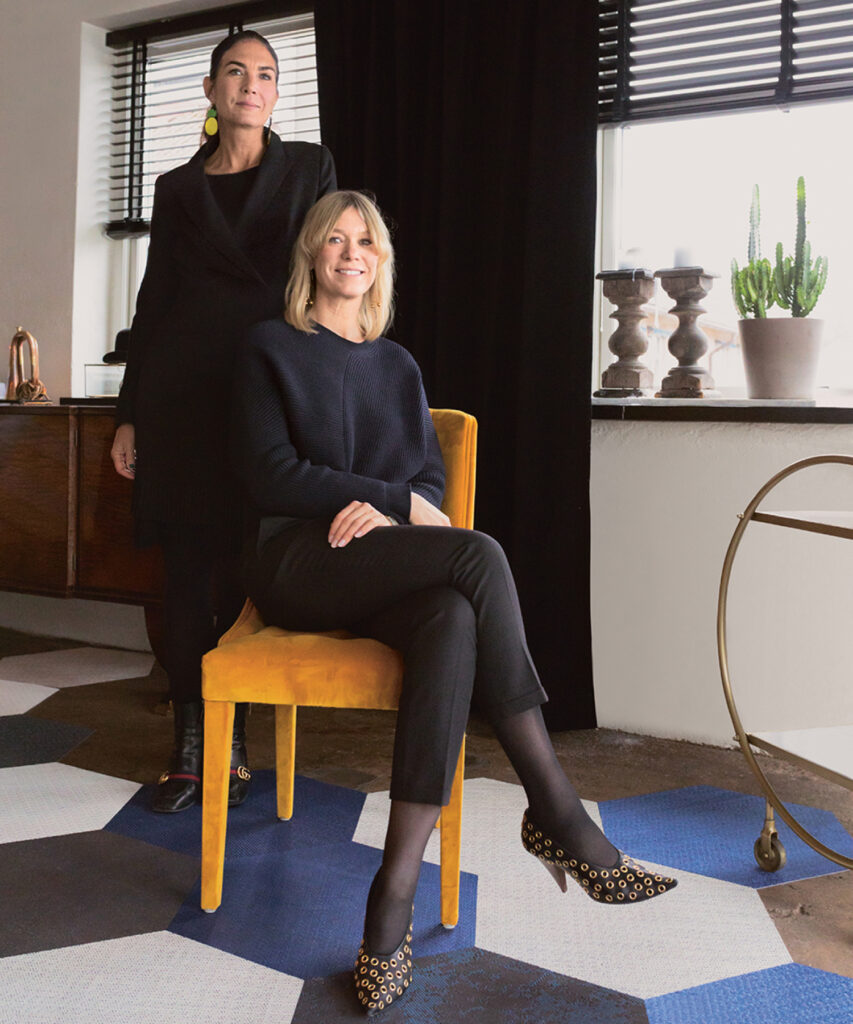
Linoleum is available in the form of flooring, PVC, sisal and textile carpets – but woven, easy-to-clean vinyl in bright, fashionable patterns was a new departure. Today, Bolon works with renowned designers and architects such as Rosita Missoni, Jean Nouvel and British design studio Doshi Levien. Companies such as Microsoft and Google have kitted out their offices with products from Ulricehamn. Many of their customers appreciate the fact that the Eklunds still stick to their grandfather’s original idea – Bolon recycles 33 percent of its textile waste directly in Ulricehamn and uses it to reinforce its flooring. Over the past few years, they have invested over 15 million euros in production so that even the nylon yarns are now made on site. “In order to be at the top of our game, we need to be fully in control of all of our materials here,” says Annica.
Was it the renowned label “Made in Sweden” that gave them a helping hand? “Swedish design stands for professionalism and is loved around the world, of course,” says Marie Eklund. “But I think the pride we have in our production and how we convey this pride to others is far more decisive.” They had always been fighters, had pursued their visions bravely, she says. “That’s what you have to do in life, otherwise you don’t get far. No one else does that for you.” That’s what they had learned while riding horses. At the end of the day, riding had also been hard, dirty labour. And perhaps also while playing in the seclusion and depths of the Swedish woods.
This article was first published in the spring 2018 print edition of 30 Grad.